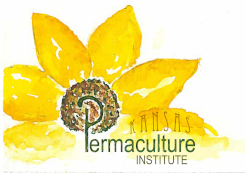By Ben Stallings |

David R. Montgomery
At the end of January 2019, I attended the annual conference of No-Till on the Plains in Wichita. Here are my notes from the first keynote address, by David R. Montgomery and Anne Biklé:
- based on their second book of the same name; also wrote "Dirt" and "Growing a Revolution"
- Montgomery's day job: university geology professor
- Earth is the only planet we know of with soil, as opposed to regolith.
- A nonillion (30 zeroes) microbes live on the planet, enough to stretch to Alpha Centauri and back.
- Soil degradation is global, but regeneration is happening in many places.
- Historically it was the plow, not the axe, that caused degradation.
- Farming began in river valleys and spread up the hillsides.
- soil flowed downhill and eroded away
- boom & bust cycle is clear in Greek valleys that have survived 3 civilizations.
- delay from bust to boom is due to soil regeneration, documented by Plato.
- Nature doesn't build soil as fast as we can erode it, but we can.
- percent organic matter of today's soil is only about 50% that of virgin soil.
- conventional tillage erodes about 1.54 mm/year, while geological processes build 0.3 mm/year. But no-till agriculture can build 0.8 mm/year.
- Even if loss rate was just 1 mm/year, that's 1m in 1000 years.
- The only continuous farming has been in river valleys where silt is deposited to replace erosion.
Montgomery & Biklé bought a house in Seattle with an "old growth lawn" on soil bereft of organic matter.
- brought in OM from various sources, did not dig it in; also applied worm tea.
- Mulch decomposed as fast as they could put it in, but built an inch of topsoil in 6-7 years.
- Beneficial nematodes feed on bacteria and deposit nitrogen-rich manure right by plant roots.
- Plant exudates feed bacteria and fungi, whose metabolites feed the plants.
- the rhizosphere (root zone) is a gut, but also a brain.
- Chemical fertilizers are seductive and dramatically build the plant above ground, but the roots and soil life are underdeveloped.
- The soil microbiome was documented earlier than the human one, but all macroscopic creatures have one.
- There is a very strong analogy from the human to the plant microbiome.
- Most of ours is in the colon mucus layer. Dendritic cells reach into the colon from outside to fetch molecules to activate T cells.
- In many ways the gut is the seat of intelligence.
- Microbes got a bad rap due to the germ theory of illness.
- Bad (disease) microbes live in relationship with many friendly ones.
- As infectious diseases got controlled, chronic diseases took their place.
- Hypothesis: we're missing our friendly microbes.
- The colon is not a garbage dump, it's a garden ecosystem and medicine chest.
- Processing grains strips off the fiber, removing the food our microbiome needs.
- B. theta (Bacterioides thetaiotaomicron) alone has genes for 300 carbohydrate-digesting enzymes, while our human genome codes for only 20.
- Short chain fatty acids produced by gut microbes, such as acetate & butyrate, boost health in many ways.
- about 40% of your body chemistry is of bacterial origin.
- We are what our microbiomes eat, so mulch your soil inside as well as out!
- A root is a gut (inside out), but a brain as well.
- So how do we take this garden experiment large scale?
- general rule: "Ditch the plow, cover up, and grow diversity."
- Specific practices need to be tailored to the specific setting. Subsistence farmers worldwide work intensively at small scale.
- Cattle are self-propelled methane digesters; they speed up soil regeneration.
- LaCanne & Lundgren study: regenerative agriculture is 2x more profitable than conventional, has 10x fewer pests.
- There is no phosphorus shortage; we just need more arbuscular micorrhizal fungi to make it available.
- Healthy soil from regenerative ag has comparable yield to chemical ag with no downsides and better food quality.
- Organic farming simply isn't good enough; we need regenerative ag.
- Log in to post comments




